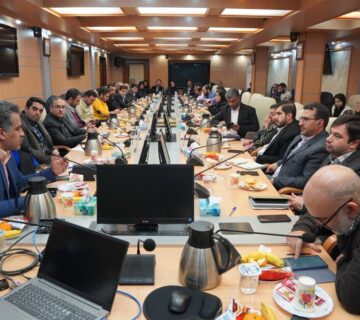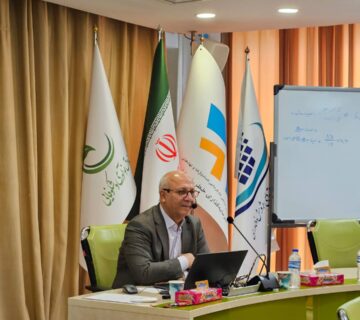The sixth term of the Board of Directors of the Iran National Venture Capital Association convened with the purpose of reviewing the achievements of the previous term and presenting the performance report of the fifth term. During the session, Dr. Mohammad-Mehdi Faridvand, Chairman of the fifth-term Board of Directors, delivered a comprehensive report outlining the Association’s key activities during the past term.
Key Initiatives of the Fifth-Term Board:
- Efforts to Bridge Supply and Demand:
- Organization and participation in the “Finotex Investment Café” event.
- Active engagement in panel discussions and workshops on the sidelines of the “Inotex” exhibition.
- Capacity Building and Promotional Activities for Members:
- Organization of over 15 training workshops led or co-hosted by the Association, including:
- Financial Risk Management for Public Venture Funds.
- Corporate Venture Capital and Standard Investment Models.
- Venture Portfolio Governance.
- Investor and Board Relations in VC Funds.
- Organization of over 15 training workshops led or co-hosted by the Association, including:
- Contribution to the Development of Legal Tools for Members:
- Involvement in drafting the “Knowledge-Based Production Leap Law,” including more than six articles relevant to research and technology funds and investment-related tax credits.
- Pursuit of regulatory amendments to improve tax credit provisions under the same law.
The session also addressed key challenges facing Iran’s innovation ecosystem, notably the lack of funding sources and capital flight, which were highlighted as primary concerns among venture capital stakeholders. Discussions were held on possible strategies for the Association to more effectively support VC firms moving forward.
Participants emphasized the importance of sustained collaboration between the Association and other influential institutions within the ecosystem. The session concluded with expressions of appreciation for the contributions of the fifth-term Board and a call for greater synergy in the new term.
Members underscored the necessity of maintaining unity and continuous cooperation between the members and the new Board of Directors in order to respond to upcoming challenges. Further emphasis was placed on enhancing support infrastructure, expanding specialized training programs, and strengthening the Association’s role in improving the venture capital landscape and fostering innovation in the country.
The weakness of legal infrastructure, the absence of stable incentive policies, and economic volatility were cited as major obstacles to VC activity in Iran. Nevertheless, the latent potential in knowledge-based companies and startups presents an opportunity to design innovative financing mechanisms—underscoring the importance of the Association’s active involvement in this domain.
Analyses further suggest that alignment among policy-makers, financial institutions, and technology enablers will be a critical factor in ensuring the sustainability and effectiveness of venture capital in Iran.











No comment